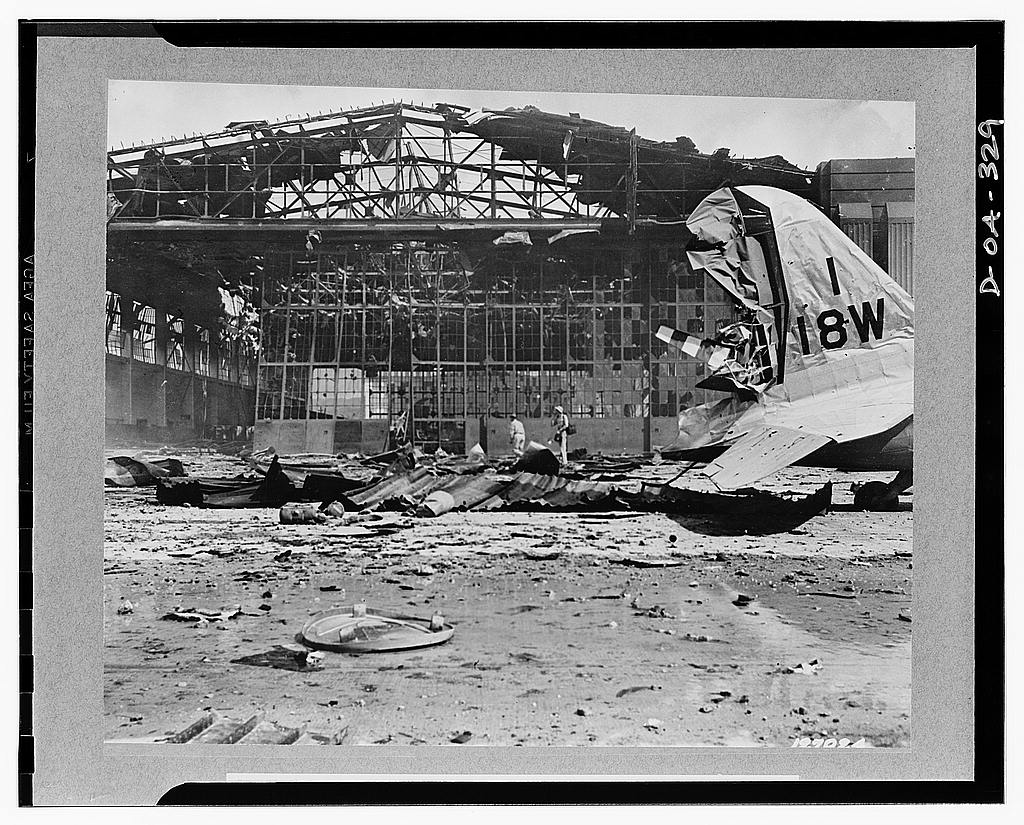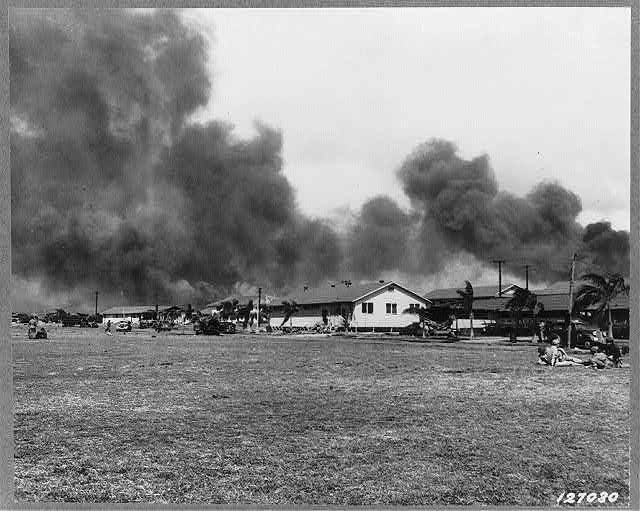Jack Feldman graduated from Olney High School in Philadelphia in June of 1940. The Olney yearbook lists his hobbies as “flying airplanes and entertaining beautiful women.” His goal was to become “a first-rate airplane mechanic.” He worked toward his goal by enlisting in the Army Air Corps on March 1, 1941. Feldman left Philadelphia and his family jewelry store for Hickam Field in Hawaii. It was a seemingly idyllic posting, some called it a paradise.
Private Feldman was assigned to the 22nd Materiel Squadron, part of the 17th Air Base Group at Hickam Field, adjacent to the Naval Base at Pearl Harbor. When the Japanese attack came on the morning of December 7, 1941, 51 airplanes were on the ground at the air field. Japanese fighter and bombers attacked the planes and the facilities there. Nearly half the planes were destroyed. The hangars were hit by bombs. The barracks were strafed and bombed. Bombs hitting the mess hall killed many Americans eating their breakfast when the inconceivable attack arrived. The Air Force history recounting the day called it “Hell in Paradise.”


Jack Feldman was killed that day. He was one of 29 from his squadron whose lives were lost to the Japanese attack. Word of his death reached home on December 10th. Newspapers reported his death as the first Philadelphian killed in the war. The Jewish community responded with a service held on December 12th at the YM and YWHA on Broad Street. Rabbi William H. Fineshriber of Congregation Keneseth Israel conducted the service which was held in memory of both Feldman and Corporal Theodore J. Lewis, another Jewish Philadelphian killed in Hawaii that day. Rabbi Fineshriber said: “They gave up their lives so that the peoples of the world might again be free. Their names will live forever in the minds of those for whom they fought.” 500 friends and family attended.
They gave up their lives so that the peoples of the world might again be free. Their names will live forever in the minds of those for whom they fought.
Rabbi William H. Fineshriber
Feldman’s mother did not want her son’s sacrifice to be the end of the family’s contribution to the war effort. Mrs. Reba Feldman said she wanted to do something “for the Army.” According to newspaper reports, she went to the same Army recruiting station she had visited with her son a year earlier. “Jack was killed when Japs bombed Pearl Harbor,” she told attaches at the recruiting station. “I want to take up where he left off. Surely there is something I can do for the Army.” She was given a job at the Quartermaster’s Depot.
Feldman was posthumously awarded the Purple Heart in 1943. His father Benjamin Feldman received the award. The AZA-BBYO publication “The Shofar” took the opportunity to memorialize him. AZA referred to him as a “well-loved Aleph… known to all Alephs of Philadelphia as an active member of Joshua Chap. 149.” The organization was working on ways to ensure he was remembered.
In 1947, Feldman’s remains were brought back to the mainland. He was reinterred at Roosevelt Cemetery. There, his service and sacrifice were again acknowledged.